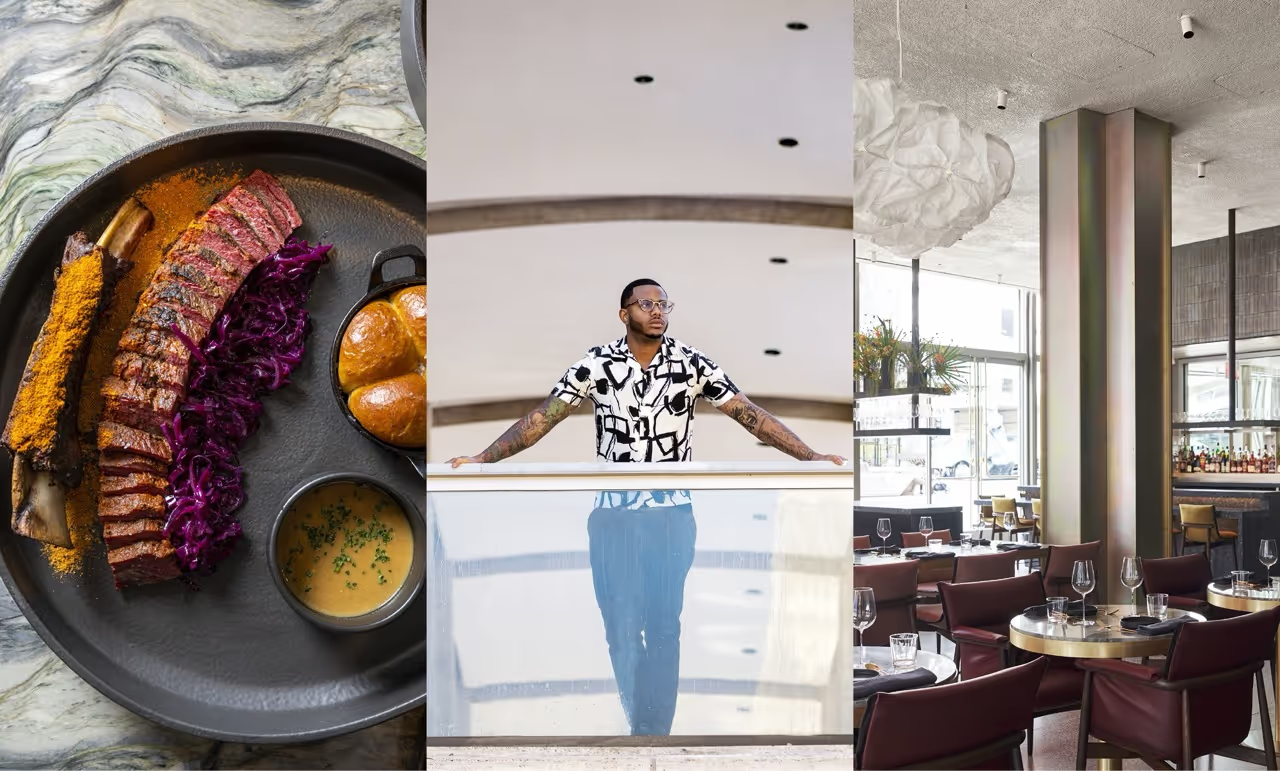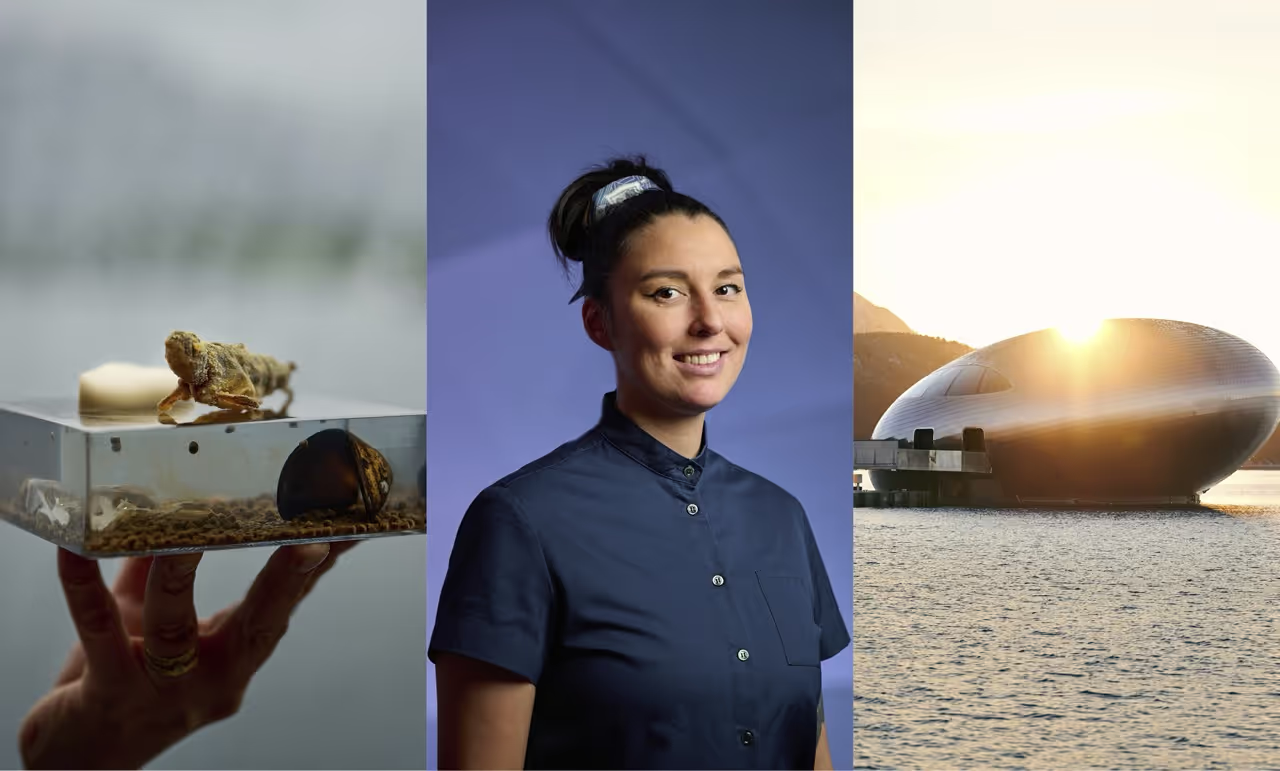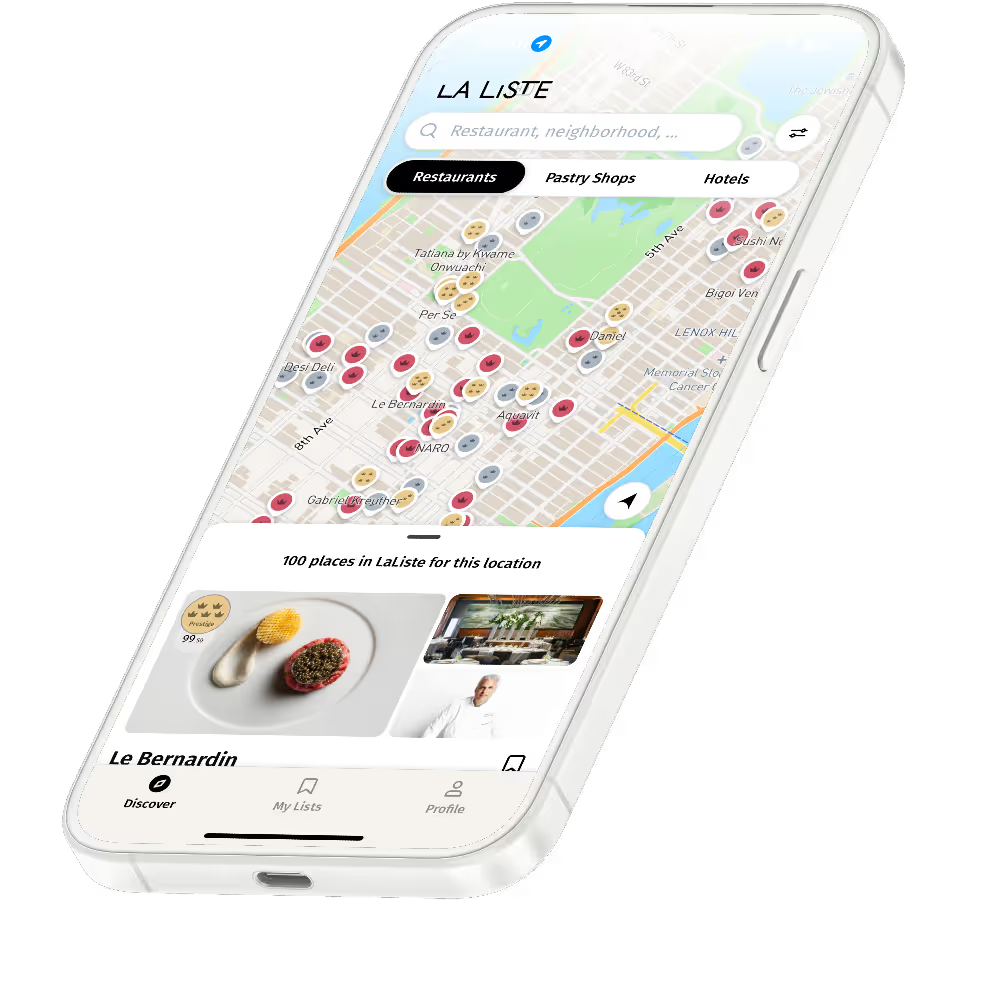Norway’s latest fine dining restaurant takes experiential eating to new levels. To dine at Iris, you must first fly to Bergen, then drive for several hours and take a ferry ride to Rosendal. To reach the restaurant, you then board an electric boat and cross the Hardanger fjord before disembarking at the futuristic Salmon Eye vessel, an art installation developed to share knowledge about sustainable fishing and ocean conservation.
Danish executive chef Anika Madsen began cooking a decade ago, inspired by Noma, and has an impressive resumé from Copenhagen’s best restaurants. Her 18-course menus steadfastly honor sustainability and hyperlocalism, and tell a story about the challenges and threats to the global food system, while also offering solutions. The six-hour dinner includes marine bounty from crispy kelp and sea urchin to cod and scallop roe, and mussels and shrimp, alongside less usual ingredients such as mycelium and insect protein.
The experience begins with a film explaining Iris's innovative strategies to combat food waste. While the restaurant itself is exemplary in terms of local ingredient sourcing, it must also navigate the complexities of its global appeal and the inherent sustainability paradox of sustainable travel. Madsen is well aware of this dynamic, drawing parallels with international climate conferences that, for all their environmental impact, act as catalysts for worldwide ecological initiatives. She explains that although the journey to Iris might not be ideal, the restaurant's overarching goal is to kindle in guests a passion for sustainable practices, and contribute to the wider narrative of innovation and environmental responsibility. Iris emerges as a worthy blend of artistic expression, environmental awareness, and sustainable cuisine.
Perched on the island of Sniltsveitøy, Iris embodies an ethos that resonates with the principles of carbon-neutral pioneers like Eide Fjordbruk. The establishment doesn't just talk about sustainability, it brings it to life. From dishes derived from ingredients found within a 500-meter radius, to the reindeer tartare that exemplifies food with a low carbon footprint, Iris transcends the boundaries of fine dining and stands as a beacon for change, challenging its diners to reconceptualize the future of food, and their own contribution to our future menus.





